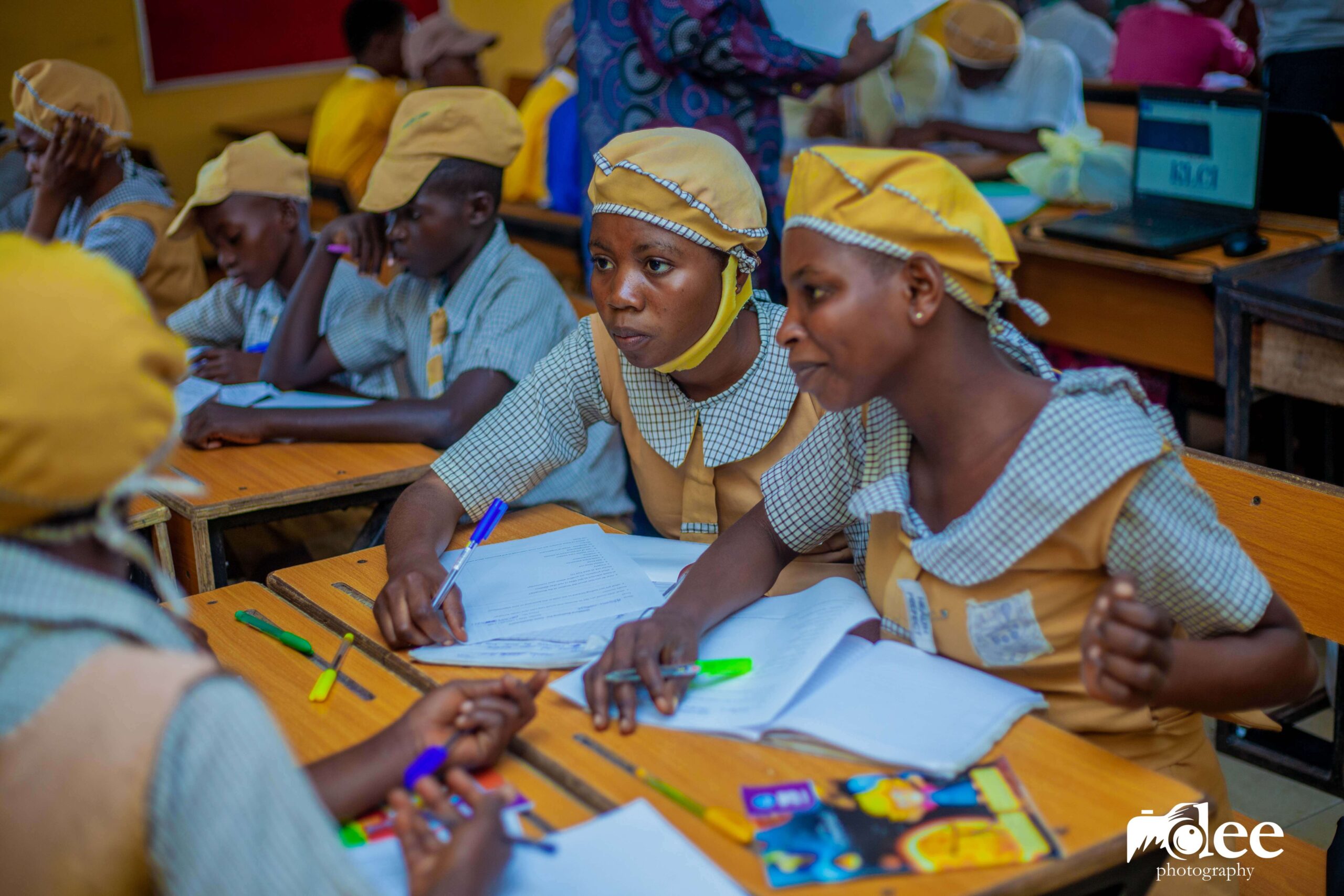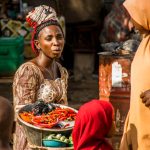LAGOS, NIGERIA: Born in Makoko, arguably one of the largest slums in the African continent, Hammed Kayode Alabi witnessed first-hand the struggles that come with living in a neglected community, including lack of access to skills, quality education, healthcare, electricity and other opportunities
To compound his problems, just about the same time Kayode lost his mother at seven, his father lost his job, leaving him with the feeling that the world was crumbling on top of him.
Despite their struggle, however, his dad managed to enrol him in a computer school, and that decision opened the doors to a world he had never imagined.
“I remember learning about geography and history when I visited the cyber cafe to surf the internet. I had an easy ride opening social media handles, and Google was my friend at 15 already,” he said.
“Access to the internet showed me what I could be and places I could go to from Makoko. It gave me a target.”
This exposure spiked Kayode’s interest in attending university after his secondary education, something far from most kids’ dreams in Makoko. Seeing Kayode’s determination, “My dad hawked CDs and combined that with support from family for me to complete secondary school,” Kayode said.
And after secondary school, “My dad’s step-sister and her husband took me in and supported me through university where I won the University of Ilorin Scholarship and a best-graduating students departmental prize (Department of Human Kinetics Education), and later the MasterCard Foundation Scholarship to complete an MSc in Africa and International Development at the University of Edinburgh.”
Today, Kayode works as the Educational Mentoring Coordinator at Refugee Education (UK), where he manages the mentoring hub in West London and connects young refugees/asylum seekers to mentors for educational support.
Giving back
Kayode attributes his success to luck, knowing that many children in shanty towns like Makoko barely have access to quality education skills, leadership and career opportunities.
For this reason, after university graduation, he started the Kayode Alabi Leadership and Career Initiative or KLCI in 2018 to empower kids in public secondary schools and low-income private schools in rural communities across Nigeria with a series of lectures on money management, servant leadership, philosophy, value system, and sustainability.
It does so under KLCI’s project called Skill2Rural Bootcamp, which places the children in groups where they collaborate to co-create innovative solutions to problems they face within their communities.
The two-five-day boot camp is held annually in a selected school, internally displaced persons camp, or a community centre.
“The idea is first to challenge their mind and shift it from where it is used to,” said Lipede Omolola, chief programmes officer at KLCI. “And to inspire the children in rural and underserved communities to solve problems close to them whilst developing life and 21st-century skills to navigate life and prepare for the competitive labour market or create jobs,” added Kayode.
Olasunkanmi Olatunji, an undergraduate student at the University of Lagos, said participating in the inaugural boot camp in 2018 when he was still in secondary school fuelled his desire to improve.
Olatunji said Project Ilare, a prototype mobile clinic solution he and his teammates worked on at the boot camp, made it to the semifinals of the Mandela Washington Alumni Association of Nigeria’s “Beyond the School Challenge”, a platform for outstanding secondary school students to create social and economic impact by competing on community development projects.
And that, in turn, helped him get selected to join the Millenium Campus Fellowship, a semester-long leadership development programme of the United Nations Academic Impact (UNAI) for undergraduate students and was subsequently made the campus director of the University of Lagos 2022 cohort of the fellowship.
“Without the KCLI skill2rural boot camp that I attended, I wouldn’t have had this much exposure,” he toldPrime Progress. “The initiative, which i never thought of before then, has helped my life.“
A community-owned process
KCLI has reached 6400 teenagers like Olatunji through the Skill2Rural bootcamp project and about 500 students in several rural communities in Ogun, Lagos, Kwara, Benue, and Borno states. The participants have co-created about 70 prototypes to minimise the issues related to poverty and unemployment.
But before KCLI holds a boot camp, it identifies an underprivileged community needing access to career skills and better educational opportunities. Then a certain number of children is enrolled for the boot camp based on available resources, with ten leadership and career experts as facilitators and 20 volunteers to help run the project.
“To formally access the participants, we write letters and submit them to the school or communities depending on the target audience. We follow up on the schools or communities. There are specific cases where we do not have direct access to the target audience, for instance, the children in IDP camps. For this, we have to reach out to organisations with access to them,” said Omolola, the chief programmes officer.
He admits, however, that KCLI, which depends on grants and donations to function, is yet to reach some communities it would have loved to reach due to bad road networks, poor network coverage and sometimes insecurity.
“Another challenge we face is the language barrier which limits how we train the children. We had this experience during the boot camp in Maiduguri [where Hausa is the primary language with most people struggling to understand and speak English],” said Omolola.
Yet, Kayode said, “The joy I see from the work I do and how I see the young people that we support through our initiative change their circumstances” will continue to push the nonprofit.
This story was produced with the support of Nigeria Health Watch through the Solutions Journalism Network, a nonprofit organisation dedicated to rigorous and compelling reporting about responses to social problems.
Hammed Kayode Alabi, born in the Makoko slum of Lagos, Nigeria, faced numerous adversities including losing his mother and his father's job at a young age. His enrollment in a computer school exposed him to the internet, igniting an interest in higher education. With family support, he completed secondary education, received scholarships for university studies in Nigeria and the UK, and now works as an Educational Mentoring Coordinator at Refugee Education (UK).
Determined to help others, Kayode founded the Kayode Alabi Leadership and Career Initiative (KLCI) in 2018. KLCI aims to empower students in rural Nigeria through the Skill2Rural Bootcamp, offering training in money management, leadership, and other skills. The boot camps have benefitted over 6400 teenagers, helping them develop life skills and create community solutions.
KLCI faces challenges such as poor infrastructure and language barriers but continues to make an impact. Participants like Olasunkanmi Olatunji have pursued leadership roles and projects, demonstrating the initiative’s success in fostering personal and community development.
This story is supported by Nigeria Health Watch and the Solutions Journalism Network, dedicated to reporting on responses to social problems.





